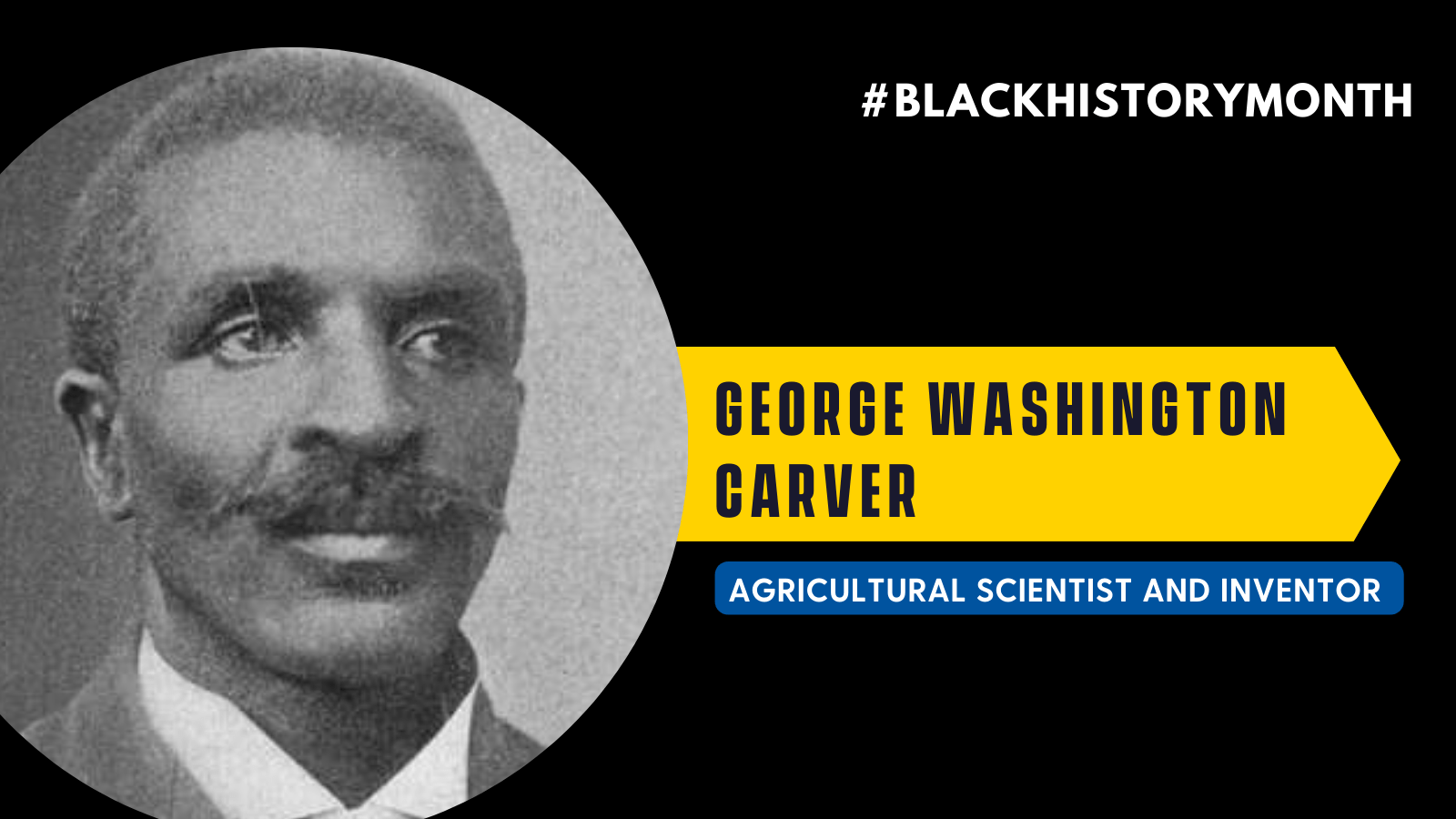George Washington Carver was born an enslaved person in the 1860s in Missouri. He was unable to work on the farm due to health reasons so instead, Susan Carver took him under her wing teaching him how to do work around the house, as well as how to concoct simple herbal medicines. Thus began his interest in plants, all before the age of 11 years old. He became known as “the plant doctor” to local farmers due to his ability to discern how to improve the health of their gardens, fields and orchards.
Carver traveled around and lived with many different families to pursue a better education. He graduated from Minneapolis High School in Minneapolis, Kansas, in 1880 and applied to Highland College in Kansas (today’s Highland Community College). He was initially accepted at the all-white college but was later rejected when the administration learned he was Black.
“Where there is no vision, there is no hope.”
George Washington Carver
Not to be deterred, Carver continued his journey to continue to his education and in 1894, he became the first African American to earn a Bachelor of Science degree. Impressed by Carver’s research on the fungal infections of soybean plants, his professors asked him to stay on for graduate studies.
Carver worked with famed mycologist (fungal scientist) L.H. Pammel at the Iowa State Experimental Station, honing his skills in identifying and treating plant diseases.
In 1894 he became the first Black person to graduate from Iowa State University, where he studied botany and fungal diseases. He went on to earn a Master of Science in bacterial botany and agriculture in 1896.
After completing graduate school Carver met Booker T. Washington and received an offer he could not refuse. The offer led Carver to become a professor and conduct research at Tuskegee University for decades. Booker T. Washington became such a strong mentor and influence in his life that he changed his name from George Carver to George Washington Carver.
He invented over 300 uses for the peanut and developed methods to prevent soil depletion. It was his ideas regarding crop rotation that proved to be most valuable. He was made a member British Royal Society of Arts — a rare honor for an American – and advised prominent leaders like Mahatma Gandhi and President Teddy Roosevelt on agriculture and nutrition
Soon after his death, his childhood home would be named a national monument — the first of its kind to honor a Black American. Carver was also posthumously inducted into the National Inventors Hall of Fame.
Comments closed